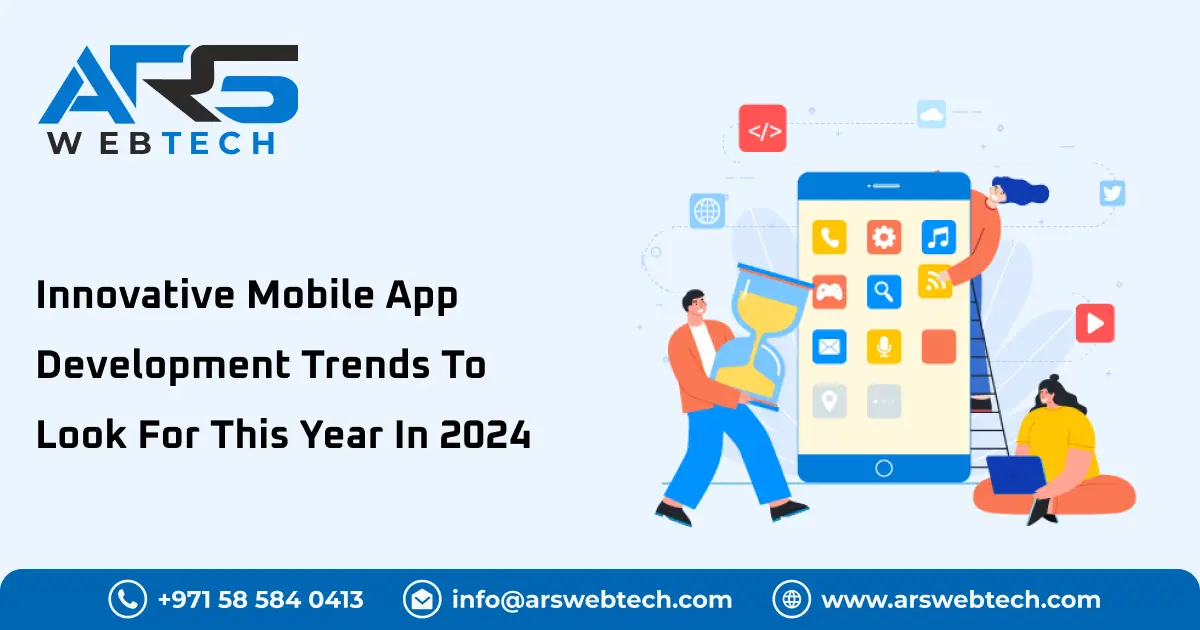Introduction
The realm of mobile application development is incessantly evolving, with innovations steering our daily digital interactions. As we navigate through 2024, a suite of innovations and behavioral patterns are reshaping application usage and molding the future of the industry. This article endeavors to illuminate the fifteen most pivotal trends for the forthcoming years, catering to developers, tech aficionados, or the merely curious.
Expanded Reality (AR) in Mobile Apps
The seismic shift towards AR in mobile applications over recent years has unfurled new vistas for engaging users. Its pervasive influence spans across domains, from gaming and education to the burgeoning sector of e-commerce.
AR for E-Commerce
E-commerce giants like IKEA have harnessed AR to revolutionize shopping experiences, enabling consumers to visualize products within their space before purchase, thereby augmenting sales and reducing returns.
Integration of AI and ML
AI and ML are the linchpins behind enhancements in apps, powering everything from voice and text recognition to personalized user experiences in platforms like Netflix and Spotify.
Personalization with AI
AI's forte lies in tailoring experiences, evident in how streaming services deploy algorithms for bespoke content recommendations.
On-Demand Apps
The ascendancy of on-demand applications epitomizes the modern consumer's quest for instantaneity, offering everything from food delivery to cab services at their fingertips.
Benefits for Businesses
On-demand apps have not only redefined consumer convenience but also offered businesses a leverage to amplify customer engagement and operational efficiency.
No-Code and Low-Code Development
The advent of no-code and low-code platforms heralds a new era where app development becomes accessible, significantly reducing the time and cost associated with traditional coding.
Alternative and Touchless User Interfaces
Innovative UI technologies, including voice and gesture recognition, are setting new benchmarks for app interaction, enriching user experience with intuitive controls.
Voice Activation in Apps
Voice-activated technologies have made significant inroads, allowing users to navigate apps through simple spoken commands, thus enhancing accessibility.
Wearable Device Apps
The foray into wearable device applications brings technology closer to the user, with fitness trackers and smartwatches offering a more intimate digital experience.
Health and Fitness Apps
Wearable technologies have become stalwarts in promoting health and fitness, providing users with personalized insights into their wellness journey.
Mobile Apps and 5G Technology
The ushering of 5G technology promises a leap in app development capabilities, with its promise of unprecedented speed and connectivity opening new frontiers for developers.
Apps for Foldable Devices
Foldable devices challenge app developers to rethink user interface design, necessitating adaptable layouts that cater to the novel form factor.
Design Considerations for Foldable Devices
Adapting apps for foldable devices requires a meticulous approach to responsive design, ensuring seamless transitions between folded and unfolded states.
Conclusion
The trajectory of mobile app development in 2024 is poised on the brink of transformative trends. From AR and AI to 5G and beyond, these developments are not merely reshaping our digital interactions but also paving the way for new opportunities in personal and business growth. The future beckons with the promise of innovation, inclusivity, and unparalleled user experiences.
FAQs
Q. How can I stay updated on the latest app development trends?
Joining tech communities, attending webinars, and following industry leaders on social media are effective strategies to stay abreast of evolving trends.
Q. Is cross-platform app development cost-effective?
Yes, it allows for the utilization of a single codebase across multiple platforms, significantly cutting down development time and costs.
Q. What are the benefits of no-code and low-code development platforms?
They democratize app development, making it accessible to non-coders and reducing the reliance on extensive coding knowledge.
Q. How does 5G technology impact mobile app development?
5G enhances app functionality with faster download speeds, lower latency, and improved connectivity, enabling more complex and interactive app features.
Q. What makes AR a game-changer in mobile apps?
AR offers immersive experiences, bridging the gap between the digital and physical worlds, and opens up innovative avenues for user engagement.
Last Updated at: 10-04-2024






